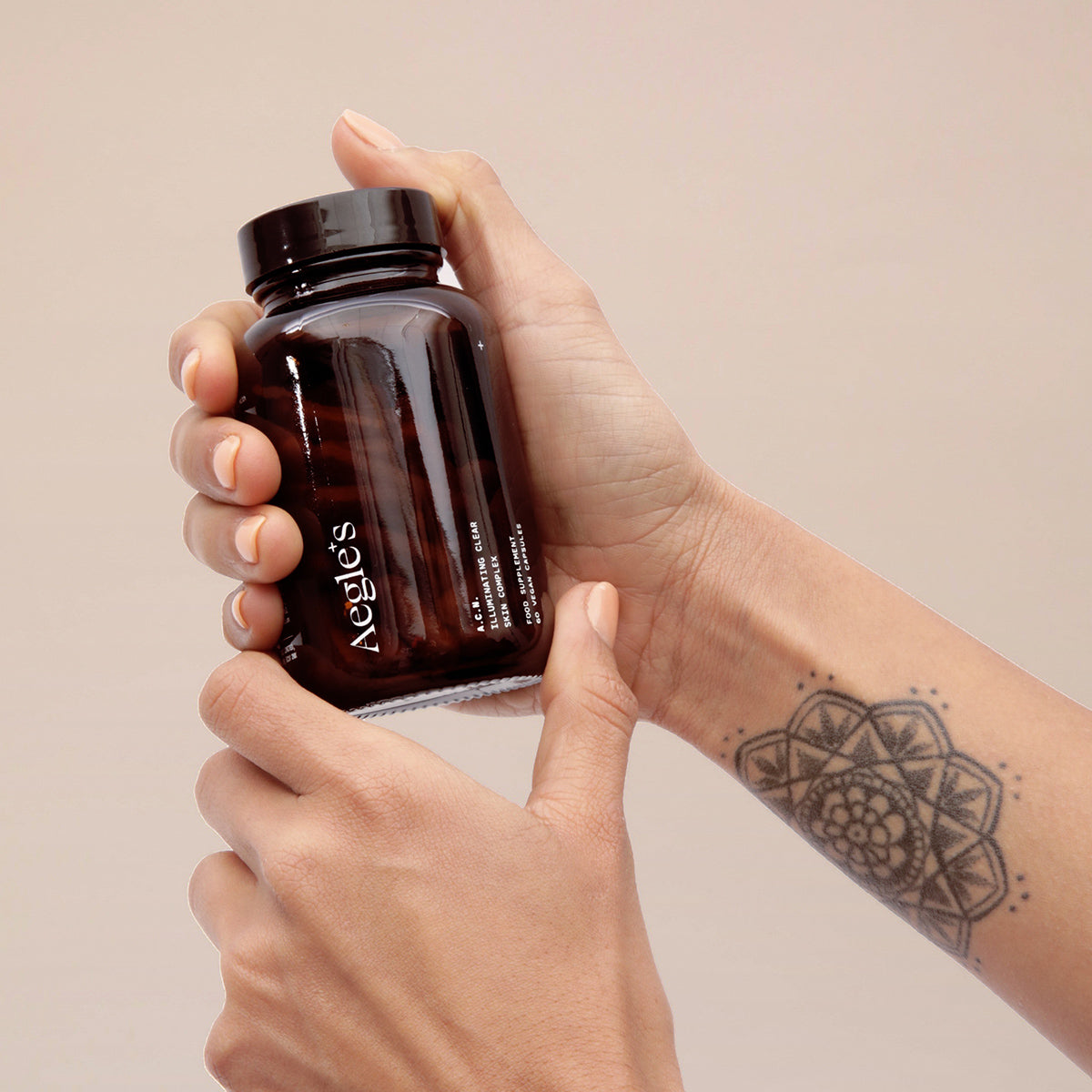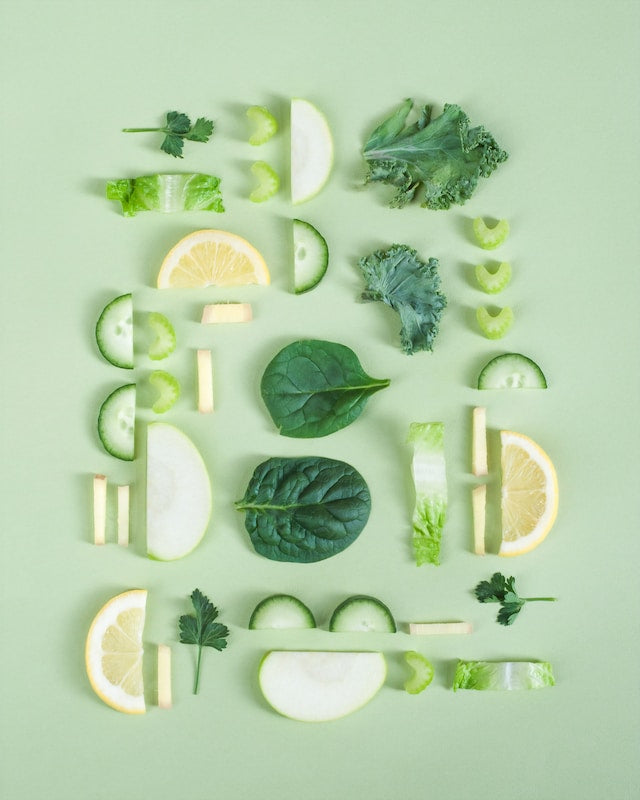The best treatment plan for your skin is a holistic approach. This means a combination of diet, lifestyle, supplementation and skincare.
This article takes a closer look at skincare – what to use and what not to use in any skincare regime in the healing and prevention of blemishes.
When skincare is the sole cause of blemishes
There are some cases where blemishes are caused by skincare alone. These cases are less common, and the breakouts appears mild with very small spots over any area over the face.
It is far more common for breakouts to be caused primarily by internal factors, in addition to the use of incorrect skincare.
For some women that are blemish-prone, their skin is more sensitive to ingredients in skincare products than others.
This is entirely dependent on the unique individual. For example, coconut oil may help to clear the skin of one woman, but cause a breakout in another.
The comedogenicity of ingredients
All ingredients in skin care have a comedogenicity rating from 0 to 5.
Comedogenicity is a measure of how likely that ingredient is to clog the pores of the skin. And as we know, clogged pores are the perfect setup for blemishes to develop.
If a woman has blemish-prone skin, it is recommended that she checks the first eight ingredients in her skincare products for their comedogenicity rating.
If any of those ingredients have a rating above 2, then it is not the correct skincare product for her to use, as it has a higher chance of clogging the skin and causing breakouts.
Many makeup brands are highly pore clogging and aggravating to broken out skin. It is therefore highly recommended to choose a makeup brand that is specifically formulated for blemish-prone skin.
There are also makeup brands that include blemish-fighting ingredients, such as salicylic acid or zinc oxide.
Skincare recommendations
In addition to choosing skincare that is not going to cause breakouts, there are specific ingredients that are beneficial in promoting the healing of blemishes.
These ingredients are recommended to look for in any skin care product.
Aloe vera
Aloe vera is an astringent which is helpful for those women who typically have oily skin. Its astringent nature helps to dry out excess oil in the skin, and therefore reduce breakouts.
For those with blemishes who typically have dry or normal skin, the astringent nature of aloe vera can further irritate the skin. So in these cases it is recommended to combine it with an oil or moisturiser before applying to the skin.
Aloe vera also naturally contains salicylic acid, which is an anti-inflammatory and natural exfoliant. This helps to prevent the pores of the skin from becoming clogged, and therefore preventing acne.
Zinc
Zinc is a naturally occurring mineral that has both anti-inflammatory and antibacterial properties, which helps to symptomatically clear blemishes.
Vitamin C
Vitamin C is an anti-inflammatory which helps to clear blemishes.
Its ability to stimulate collagen production also helps to clear hyperpigmentation (discolouration) scars.
Jojoba oil
The molecular structure of jojoba oil is almost identical to that of the skin’s sebum. It’s because of this similarity, when used topically the skin is “tricked” into believing it does not require any more sebum production. So by using jojoba oil on the skin regularly, it can reduce sebum production and therefore reduce breakouts.
Jojoba oil also is both an anti-inflammatory and antimicrobial, which helps to heal existing blemishes.
Clays
Natural clays used on the skin as a face mask have the benefit of drawing out impurities from the skin. This helps in the prevention of new blemishes.
Clays are also naturally anti-inflammatory and antibacterial which helps to clear existing blemishes.
There are many different types of clays, and some are more ideal for sensitive, oily or dry skin types. Bentonite clay is one of the most gentle and commonly used clays for healing breakouts.
Essential oils
There are many essential oils that can be used to heal the skin and to prevent future breakouts.
It is important to never use an essential oil on the skin without dilution, as in their pure form they are too strong and will irritate the skin. The one exception being lavender, which can be used without dilution.
Some essential oils commonly used in the topical treatment of blemishes include:
- Tea tree
- Lavender
- Rosemary
- Sandalwood
- Clary sage
Probiotics
Topical probiotics restore skin microflora, preventing new blemishes from taking form.
Colloidal silver
Colloidal silver is a powerful antimicrobial that works to eliminate the bacteria in the skin and heal breakouts.
Manuka honey
Whilst manuka honey is not going to prevent new breakouts from forming, its powerful antibacterial nature makes it an excellent spot treatment or addition to any skincare.
Apple cider vinegar
Apple cider vinegar is an anti-inflammatory, as well as containing acetic acid and alpha hydroxy acid. These properties make it an excellent natural exfoliant to prevent new blemishes from forming.
Why skincare alone is rarely the solution
There are topical pharmaceuticals available that will clear the skin without working on any internal balances.
However, the issue with using these products is the person using them becomes reliant. As the internal imbalances have not been corrected, as soon as the products stop being used the breakouts return, sometimes worse than they were before.
By utilising much more gentle and natural skincare options, healing of the internal imbalances can be monitored by watching any changes in the skin. The use of the skincare should be supportive to an internal treatment, rather than being the sole regime.
Of course there is the odd exception where blemishes are caused solely by skincare, however these cases are less common.
Start your journey to heal your skin now.

Start your journey to heal your skin now.
- Contains ingredients clinically proven to improve blemishes and skin radiance.
- Formulated by one of the world's leading skin practitioners.
- The only supplement that works for the three main causes of blemishes, blackheads and oily skin.
Discover more articles
- Choosing a selection results in a full page refresh.






